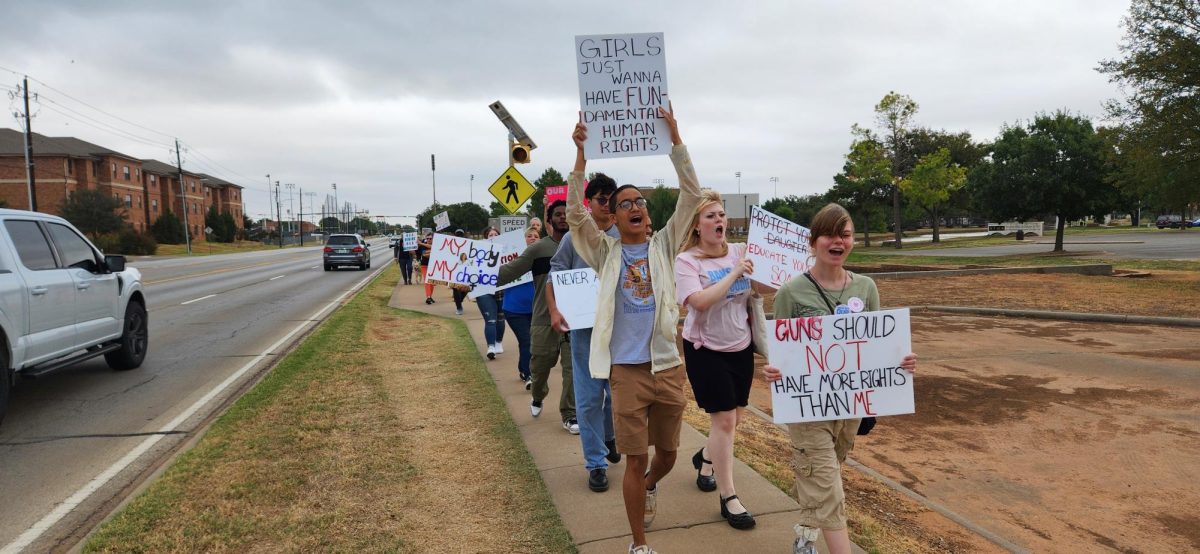The Bilingual Education Student Organization members and Omega Delta Phi, Inc. members organized Las Posada at MSU for the community in Wichita Falls at 6 p.m. in the Clark Student Center Atrium. Patricia Ramirez, bilingual education senior and BESO president, explained the religious importance of Las Posada.
“Las Posada is the reenactment of Mary and Joseph’s journey to look for refugee,” Ramirez said. It usually last nine days but we’re kind of shortening it to just one day.”
Ramirez also explained what BESO is. It is a student organization that encourages students to seek a career in bilingual education. Many student members help international students adjust to MSU as well as promote linguistic diversity.
“BESO is for students who are majoring in bilingual education who are wanting to be a part of the field. We help students learn English and try to get them integrated into the MSU student life.”
Treston Lacy, mass communication senior and Omega Delta Phi, Inc. president, explained the importance of Omega Delta Phi, Inc. It was founded in 1987 by seven people.
“It isn’t an ordinary fraternity. We give everyone a chance to enjoy the fraternal experience of brotherhood, scholarship, and community service.”
Lacy said that Omega Delta Phi is a multicultural fraternity that promotes cultural and ethnic diversity.
“We always pride ourselves on being multicultural,” Lacy said. “We never cater to just one type of culture. When you look at members of Omega Delta Phi and you don’t see the exact same people. No one looks like. We all come from different backgrounds and different upbringings but we have this one thing that brings us together and that is the brotherhood.”
Ramirez explained how members of BESO and Omega Delta Phi, Inc. were going to reenact the voyage of Mary and Joseph.
“We’re going to have four doors and people are going to be standing near each one and reject Joseph and Mary. At the end, they’re going to be able to take refuge in the last house. At the end, everyone comes together and they sing.”
Ramirez said she hopes that this event is as big as the Las Posada event last year.
“Hopefully about 100 people show up,” Ramirez said. “That’s how much I believed that showed up last year. It was quite a few people.”
The event started off with traditional Mexican dances, including those from Jalisco and of the pre-Columbian era. Lacy said that his favorite dance was the Jarabe Tapatio.
“It has to be the all-time favorite of the hat dance,” Lacy said. That song is so catchy.”
However, Maria Peña, political science senior, said she enjoyed the Danza de Los Viejitos.
“My favorite part was when the girls were dancing,” Peña said.
Peña also said that she is familiar with Las Posada since her family normally celebrates it.
“We do it every year,” Peña said. “We usually start at my parent’s house and end at my mom’s friend’s house.”
The event ended with the reenactment of Mary and Joseph voyage. Many of the reenactors were members of Omega Delta Phi.
“I was playing one of the wise men that traveled with Joseph and Mary as they were trying to find shelter,” Lacy said.
During the reenactment, the audience also participated by singing the song of Las Posada. Peña said that she really enjoyed participating in the reenactment.
“It was fun,” Peña said. “All we did was sing.”
Montserrath Garay, bilingual education junior and BESO secretary, said her favorite part of Las Posada was seeing from the community coming together and celebrating this event.
“We don’t see this many Hispanic students or Hispanics in the community,” Garay said. “I just like the environment and people getting together.”
Garay also explained the different ways Christmas is celebrated in Mexico compared to the United States. She said Christmas in Mexico is significantly more religious.
“We normally celebrate Christmas on Dec. 24 at midnight. That’s when the children open their presents instead of waiting until the next morning in the United States. We celebrate the birth of Jesus in Las Posada. We also do prayers.”
Garay also said her favorite parts of Mexican culture are its liveliness and cuisines.
“Mexican culture is very vibrant. We like to celebrate and come together as a whole. We have really good food. It’s amazing and it brings us together as well.”
Griffin Forsgren, mathematics freshmen, said he also loves the inclusiveness of Mexican culture.
“Even if people aren’t Mexican or Hispanic are still fully welcomed to celebrate Mexican culture, rather its Las Posada or Dias de las Muertos,” Forsgren said.






















